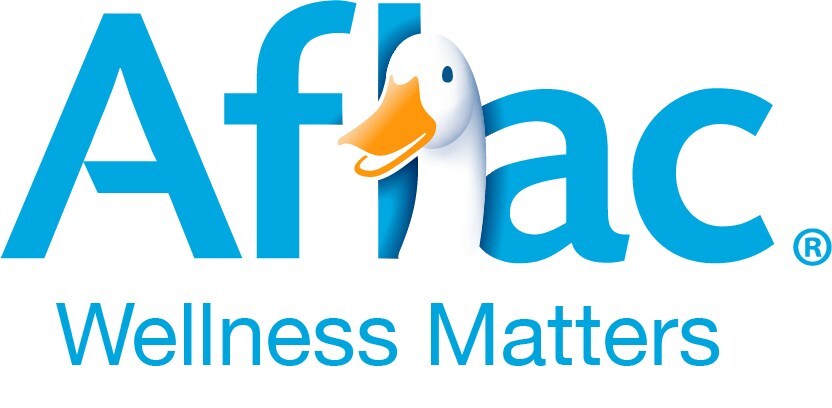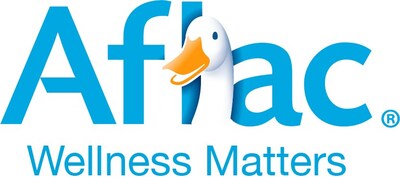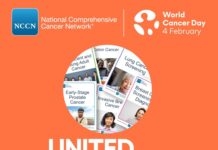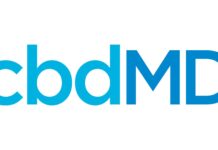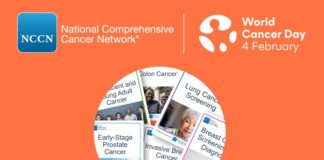Aflac’s Wellness Matters survey uncovers the prevalent use of urgent care and emergency rooms, barriers to preventive care, and vital aspects of health care for Hispanics and younger generations
COLUMBUS, Ga., Aug. 5, 2024 /PRNewswire-HISPANIC PR WIRE/ — Many Hispanic Americans are not taking personal charge of their health journeys through preventive care, routine wellness checkups and important screenings that could help detect and support early treatment of serious illnesses. These are some of the findings from the second annual Wellness Matters survey1 released by Aflac, the leading provider of supplemental health insurance in the U.S.2 The study also found that individuals in Hispanic communities rely on family encouragement for health care, with 85% of Hispanic respondents citing they are more likely to name someone other than themselves as their biggest health advocate (versus 80% of non-Hispanics).
Among Hispanic survey respondents, 88% say family encouragement is at least somewhat effective in reminding them to take care of their health. Parents are regarded as top health advocates by more Hispanics (37%) than non-Hispanics (25%).3 This emphasizes the powerful role of familial relationships in health advocacy within the Hispanic community.
Hispanics are taking a chance with their health, putting early detection at risk
When it comes to putting off important health screenings, no one’s perfect; however, 80% of Hispanic Americans admit to putting off a checkup beyond the recommended time frame at least occasionally. Additionally, 64% of Hispanics have avoided common recommended health screenings, such as a full body skin cancer scan, colonoscopy, pap smear, mammogram and more.3
Surprisingly, a majority of survey respondents who have received a cancer diagnosis are more likely to have avoided common health screenings than those who have not, underscoring the importance of regular screenings. Hispanics reported receiving a cancer diagnosis at nearly twice the rate of the general population, with 40% of those diagnosed finding out during a regularly scheduled cancer screening, compared to 30% of non-Hispanics.3
Language barriers drive Hispanic Americans away from their doctors
For Hispanics, language barriers persist, with 42% indicating that language is a hurdle to understanding their health care needs and insurance policies, indicating a need to better engage the Latino community about support, benefits and proactive health care.3
Getting to the doctor is not easy for Americans, including Hispanic Americans, as logistical barriers prevent them from getting health screenings on time — 54% of Hispanics cited conflicts with work hours, challenges taking time off work, and difficulty getting a babysitter or transportation.
Another barrier includes not perceiving a strong need for wellness appointments. More than one in four Hispanic Americans (27%) were likely to delay wellness appointments because they felt healthy and/or didn’t feel they needed a checkup at their age.
In his mid-20s, Aflac Senior Vice President and Chief Actuary Thomas Morey experienced a significant and sudden health crisis, showing that one can never be too young to develop good health habits. The condition kept Morey out of work for nearly two years, and he was in and out of hospitals for 18 months.
“As our study shows, young people, and certainly Hispanics, are often less concerned about health care issues than older generations, and the statistics support the idea that becoming ill is often a function of age,” Morey said. “But what I learned is that percentages don’t mean as much when it is happening to you. That is why I am a strong proponent of learning how to care for yourself, even when you are feeling strong. Going to the doctor for wellness checkups and recommended screenings is something everyone should keep top of mind.”
Urgent care and emergency rooms are the go-to for many young Americans
The survey uncovered 58% of Hispanics primarily use convenience care such as urgent care and emergency rooms as their primary source for health care (versus 52% of the general population).3
“Hispanics use urgent care facilities and emergency rooms at a higher frequency than their non-Hispanic counterparts, and that could be a result of language barriers or a need for more culturally relevant family practices within Hispanic communities. While there is tremendous value for urgent care and emergency rooms, establishing a relationship with a family doctor has its advantages in both health maintenance and financially as it could help save money for consumers while reducing financial strain on health care systems in the long run,” said Morey.
Instead of taking a proactive approach to their health and wellness, many Americans are reactive — even when they are armed with a family history of chronic illness/disease. According to the survey, two-thirds of Hispanic Americans have had a health scare that made them realize the need to be more proactive about their health. More than half (56%) of Hispanics report a family history of chronic illness/disease, yet 64% admit to skipping important health and cancer screenings.3
“Family history matters to preventive care because history and genetics can often help inform the future of our own health,” said Morey. “This is why Aflac is focused on helping consumers be more aware and empowered to start good health habits early and continue to prioritize proactive health care as they age.”
Hispanics lead the way in advocating for loved ones
The survey reinforces how much support matters — and the value of advocating for yourself and the ones you love, to both schedule and keep important wellness checkups. The survey revealed that 79% of Hispanics are more likely to go to the doctor based on a friend or loved one’s encouragement or gentle nag, compared to 69% of the general population. Hispanics (67%) also reported that they are less likely to rely only on themselves to advocate for their health (versus 78% of non-Hispanics).
“Life moves quickly, and sometimes, we can lose sight of what’s important for good health and wellness, which is why a gentle nudge from a loved one is so effective, particularly within the Hispanic culture,” said Morey. “The Wellness Matters survey reinforces the value of proactive health habits, but also the role that people can play in helping others by reminding them of the importance of preventative care and taking ownership of our health, regardless of age, gender or ethnicity.”
To learn more about the 2024 Wellness Matters survey and to find tips on how to take charge of your own health and encourage others to prioritize theirs, visit Aflac.com/ES/Wellness-Matters.
ABOUT THE 2024 WELLNESS MATTERS SURVEY
The 2024 Wellness Matters Survey was conducted in April 2024 by Kantar Profiles on behalf of Aflac to examine attitudes, habits and opinions about health and preventive care among a nationally representative sample of 2,000 employed U.S. adults ages 18-65.
ABOUT AFLAC INCORPORATED
Aflac Incorporated (NYSE: AFL), a Fortune 500 company, has helped provide financial protection and peace of mind for more than 68 years to millions of policyholders and customers through its subsidiaries in the U.S. and Japan. In the U.S., Aflac is the No. 1 provider of supplemental health insurance products.2 In Japan, Aflac Life Insurance Japan is the leading provider of cancer and medical insurance in terms of policies in force. The company takes pride in being there for its policyholders when they need us most, as well as being included in the World’s Most Ethical Companies by Ethisphere for 18 consecutive years (2024), Fortune’s World’s Most Admired Companies for 23 years (2024) and Bloomberg’s Gender-Equality Index for the fourth consecutive year (2023). In addition, the company became a signatory of the Principles for Responsible Investment (PRI) in 2021 and has been included in the Dow Jones Sustainability North America Index (2023) for 10 years. To find out how to get help with expenses health insurance doesn’t cover, get to know us at aflac.com or aflac.com/espanol. Investors may learn more about Aflac Incorporated and its commitment to corporate social responsibility and sustainability at investors.aflac.com under “Sustainability.”
Media contact: Jon Sullivan, 706-763-4813 or [email protected]
Analyst and investor contact: David A. Young, 706-596-3264, 800-235-2667 or [email protected]
1 2024 Wellness Matters survey (Link to Aflac.com/WellnessMatters)
2 LIMRA 2023 US Supplemental Health Insurance Total Market Report
3 2024 Wellness Matters survey results (Link directly to survey results slide deck)
Aflac’s family of insurers include American Family Life Assurance Company of Columbus, American Family Life Assurance Company of New York, Continental American Insurance Company, and Tier One Insurance Company.
Aflac | WWHQ | 1932 Wynnton Road | Columbus, GA 31999
PDF – https://mma.prnewswire.com/media/2475063/Aflac_Wellness_Infographic.pdf
Logo – https://mma.prnewswire.com/media/2475064/Aflac_Wellness_Matters_Logo.jpg
SOURCE Aflac

